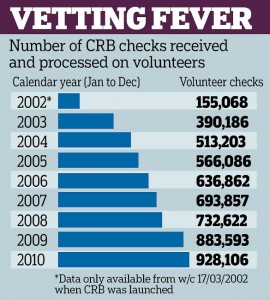Now we are into 2021 and thinking of the possibility of life after lockdown, it is a good time to review safer recruitment practice. In particular, review the wording of self-disclosure questions for job applicants and seek quality references.
Because from 28 November 2020, the filtering rules for DBS checks changed.
The Disclosure and Barring Service (DBS) will no longer disclose youth reprimands, youth warnings, or youth cautions. And where an individual has more than one conviction – they will no longer be automatically disclosed. Instead each individual conviction will be assessed against the appropriate rules.
The egislation has changed as are the result of a Supreme Court Judgment which identified that some elements of the existing filtering rules were disproportionate.
More information about these guidelines, can be found in the following government filtering guides:
